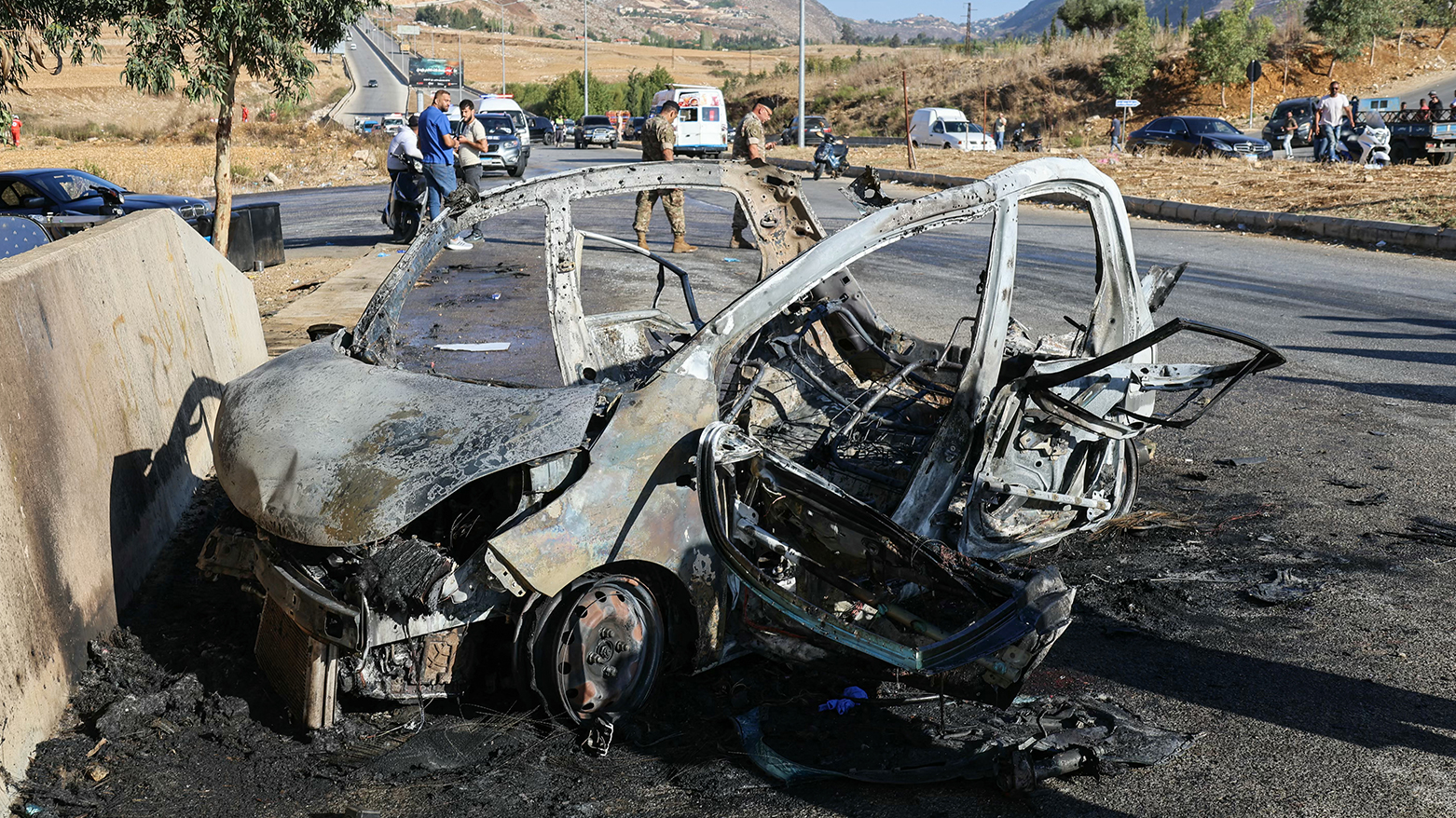Israeli Strikes Kill Two in Southern Lebanon Amid Fragile Ceasefire
Israeli airstrikes killed two people in southern Lebanon, violating the fragile ceasefire. The Lebanese government continues to pursue Hezbollah's disarmament under US pressure, while Iran asserts the group retains significant military capacity.

ERBIL (Kurdistan24) – Two people were killed on Thursday in an Israeli airstrike on southern Lebanon, according to the Lebanese Ministry of Health, despite the declared ceasefire that has been in place for several months between Israel and Hezbollah.
In a statement, the ministry reported that “the Israeli enemy’s air raid targeting a vehicle on the Jarmaq–Khardali road resulted, in an initial toll, in the death of two martyrs and the injury of one person.” The targeted area lies approximately ten kilometers from the Israeli border, a region that has repeatedly witnessed bombardments despite the November 2024 cessation of hostilities agreement.
Israel continues to carry out strikes in Lebanon, claiming that its operations target Hezbollah positions. Since the end of the last war, Israeli forces have maintained a presence on five strategic hills in southern Lebanon.
The attack followed another strike on Wednesday, when one person was killed and five others injured in southern Lebanon. The United Nations confirmed that since the ceasefire agreement, 103 civilians have been killed in Lebanon due to Israeli operations. The UN called for an immediate halt to the attacks and an end to the suffering of civilians caught in the conflict.
The persistence of Israeli strikes highlights the fragility of the ceasefire and the depth of mistrust on both sides. It also reflects the unresolved disputes over territorial occupation and Hezbollah’s armed presence in the border areas.
Under U.S. pressure, the Lebanese government last month tasked the army with drafting a plan to disarm Hezbollah fighters in the border zone. Foreign Minister Youssef Rajji confirmed that the army would complete the disarmament process within three months. He emphasized that the plan represents part of Lebanon’s effort to implement the November 2024 ceasefire deal with Israel.
U.S. envoy to Syria, Tom Barrack, reiterated Washington’s position in a statement on Thursday, declaring: “The USA continues to support Lebanon’s endeavor to rebuild its own state, find peace with its neighbors, and continue its quest for resolution of its recently signed cessation of hostilities agreement in November 2024, including the disarmament of Hezbollah.”
Barrack’s remarks came just days after Lebanese President Joseph Aoun appealed to the international community, during the United Nations General Assembly, to intensify efforts to stop violations of international resolutions and press Israel to withdraw from Lebanese territory.
The USA continues to support Lebanon’s endeavor to rebuild its own state, find peace with its neighbors, and continue its quest for resolution of its recently signed cessation of hostilities agreement in November of 2024, including the disarmament of Hizballah.
— Ambassador Tom Barrack (@USAMBTurkiye) September 25, 2025
Prime Minister Nawaf Salam likewise called on the sponsors of the ceasefire to exert maximum pressure on Israel to “immediately halt its aggressions, withdraw from occupied Lebanese territories, and release prisoners.”
Ali Larijani, Secretary of Iran’s Supreme National Security Council, also weighed in on the crisis, underscoring Hezbollah’s continued military potential despite its recent losses. Speaking to Iranian state television, he said: “Hezbollah has the capability to alter the balance in Lebanon. If Hezbollah is not acting now, it is because it does not want to ignite a full-scale conflict in Lebanon with Israel. Otherwise, it has the capacity to change the equation.”
His remarks followed his August 27 visit to Beirut, where he attended a memorial marking the first anniversary of the assassinations of Hezbollah leaders Hassan Nasrallah and Hashem Safieddine in Israeli airstrikes in southern Lebanon.
During his trip, Larijani also met Lebanese Parliament Speaker Nabih Berri in Ain el-Tineh. At a subsequent press conference, he emphasized that Hezbollah did not require external supplies of weapons. “There is no need to provide arms to Hezbollah from elsewhere,” he declared, highlighting the group’s enduring strength.
Turning to Syria, Larijani stated: “The condition of Syria will not remain as it is; the Syrian people are Muslims, and this situation will not impose permanent pressure on them.” He further cautioned against U.S. claims of defending the Lebanese people. “The Americans must not present themselves as protectors of the Lebanese nation,” he said.
When asked about U.S. envoy Tom Barrack’s comments regarding Hezbollah’s receipt of millions in aid, Larijani responded: “In my view, Mr. Barrack was angry when he made such statements. Even during a previous press conference at the same venue, he showed visible anger.”
The Lebanese government’s August decision to strip Hezbollah of its weapons by the end of the year marked a turning point under U.S. pressure and amid Israeli threats of escalating strikes. The army has since confirmed it has a plan for disarmament in the border zone, though it warned that Israel’s continued presence on Lebanese soil and its ongoing air raids obstruct the process.
For its part, Hezbollah is marking one year since the assassination of its two senior leaders. While the group emerged weakened from the nearly year-long war with Israel, it remains a decisive actor in Lebanese politics and security. Its presence, along with Israel’s occupation of southern positions, keeps the ceasefire precarious and the risk of renewed escalation high.